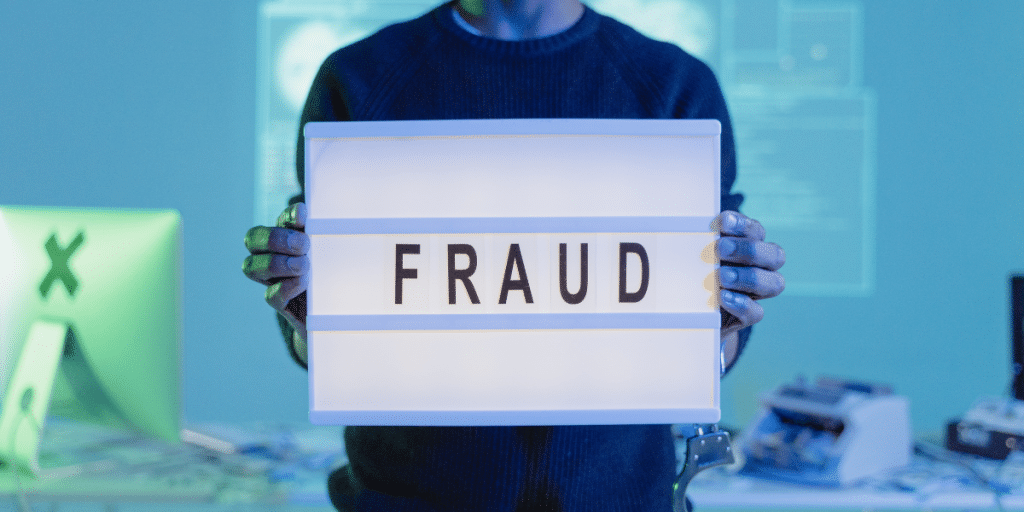As the world increasingly shifts to a digital-first approach, the convenience of online shopping, social media, and digital banking has revolutionised daily life. However, this digital transformation has also created fertile ground for cybercriminals to refine their schemes, exploiting the very tools designed to simplify modern living. According to the South African Police Service, online fraud cases have surged by 30% over the past year, a stark reminder of the rising risks that accompany our interconnected world.
From phishing emails to fake websites and identity theft, these sophisticated scams capitalise on the speed and anonymity of the digital landscape. To navigate this evolving threat, it is crucial to stay informed, adopt robust security practices, and remain vigilant. By doing so, individuals can protect their hard-earned money and personal information, ensuring they remain one step ahead in this high-stakes digital arms race.
Tip 1: Be Cautious of Phishing Scams
Phishing scams derive their name from the analogy of “fishing,” where scammers cast out bait in the form of fraudulent emails or messages, hoping to “hook” unsuspecting victims. Just as a fisherman relies on enticing bait to lure a catch, cybercriminals use convincing imitations of trusted entities to deceive individuals into revealing sensitive information.
These scams often impersonate banks, online retailers, or government agencies, with messages urging recipients to click on links, update account details, or provide personal credentials. The bait is often designed to trigger urgency or fear, such as warnings about account suspensions or fraudulent activity, compelling victims to act without careful consideration.
Once the bait is taken—usually by clicking a link or providing information—victims can unknowingly expose their financial accounts, personal data, or even grant hackers access to their devices. Understanding the deceptive nature of phishing and maintaining vigilance can help individuals avoid becoming the next “catch” in the scammer’s net.
Tip 2: Keep Your Personal Information Private
In today’s increasingly digital age, the impulse to share personal information online is almost second nature. Social media profiles, e-commerce accounts, and online forms often encourage oversharing, but this can come at a steep cost. Every piece of information—whether it’s your birthdate, home address, or financial details—can be a potential key for cybercriminals to unlock your identity.
The dangers are profound. With just a few details, fraudsters can commit identity theft, drain your bank accounts, or even open fraudulent accounts in your name, leaving you to face the fallout. This threat is magnified as personal data circulates through digital platforms, often stored in databases vulnerable to breaches.
To mitigate these risks, practise digital minimalism. Share only what is absolutely necessary, use strong, unique passwords, and never disclose sensitive details such as passwords or PINs to anyone. In a world where personal data is currency, safeguarding it is essential to maintaining your security and peace of mind.
Tip 3: Use Strong Passwords and Enable Two-Factor Authentication
Weak passwords are a goldmine for cybercriminals, often serving as the first point of entry for attacks. In an increasingly digital world, where personal and financial data is stored across multiple platforms, relying on simple or reused passwords can leave you dangerously exposed.
To fortify your digital defences, use a password manager to generate and securely store strong, unique passwords for each of your accounts. These tools remove the burden of remembering complex combinations, ensuring every account remains protected. Additionally, enable two-factor authentication (2FA) wherever it’s available. This critical layer of security requires a second verification step, such as a one-time code sent to your phone or a biometric scan, making it significantly harder for unauthorised users to access your accounts—even if they have your password.
Other tips include avoiding common passwords like “123456” or “password,” updating credentials regularly, and steering clear of storing passwords in unsecured places like notepads or emails. In today’s interconnected world, adopting these practices isn’t just recommended—it’s essential for staying ahead of evolving threats.
Tip 4: Be Wary of Public Wi-Fi
Public Wi-Fi may offer convenience, but it also comes with significant risks. Cybercriminals can exploit unsecured networks to intercept your online activity, potentially capturing sensitive information such as passwords, credit card details, or personal messages. This vulnerability makes public Wi-Fi a prime target for hackers employing techniques like “man-in-the-middle” attacks to access your data without your knowledge.
To stay secure while on public networks, avoid accessing sensitive accounts such as online banking, email, or work platforms unless absolutely necessary. Instead, protect your data by using a virtual private network (VPN), which encrypts your internet traffic and shields it from prying eyes. VPNs create a secure “tunnel” for your information, ensuring that even if someone attempts to intercept your data, it remains unreadable.
Additional precautions include turning off automatic Wi-Fi connections, avoiding network names that look suspicious, and using your mobile data for sensitive transactions when a VPN isn’t available.
Tip 5: Monitor Your Accounts and Credit Reports
In a digital economy where transactions are often seamless and instantaneous, vigilance over your financial health is paramount. Regularly reviewing your bank and credit card statements can be one of the simplest yet most effective ways to detect suspicious activity early. Unauthorised transactions, no matter how small, can signal that your account details have been compromised, potentially saving you from more significant financial losses.
Beyond monitoring statements, take advantage of the free credit report services offered by organisations like Clearscore and Experian. Regularly checking your credit report helps ensure that your personal information hasn’t been used to open fraudulent accounts or take out loans in your name. Early detection of inaccuracies or unauthorised activity allows you to act swiftly, minimising potential damage.
To strengthen your financial security further, consider setting up transaction alerts through your bank, which notify you of any account activity in real time. Combine these habits with robust account security measures, such as enabling two-factor authentication and avoiding shared or public devices for sensitive tasks, to safeguard your financial well-being in an increasingly interconnected world.
Tip 6: Avoid Using Public Computers or Devices
Shared devices, like those at internet cafes or libraries, may seem convenient, but they come with significant security risks. These computers can be infected with malware or have keyloggers installed—malicious software designed to record every keystroke you make. This means that sensitive information, such as your login credentials or financial details, could easily fall into the hands of cybercriminals.
To minimise these risks, prioritise using your own trusted devices whenever possible. Personal devices give you greater control over security settings, ensuring your software is up-to-date and equipped with strong antivirus protection. For situations where shared devices are unavoidable, consider investing in a portable secure browser, often stored on a USB drive. These tools can bypass potentially compromised software on public computers, providing a safer browsing environment.
Additional tips include avoiding accessing sensitive accounts on shared devices, logging out of all accounts after use, and clearing the browser cache to remove personal data. In today’s digital age, being mindful of where and how you access your information is crucial to protecting your privacy and security.
Sources:
- South African Police Service. (2024). Online Fraud Cases on the Rise.
- Federal Trade Commission. (2022). Online Security Tips.
- Credit Reporting Association. (2024). Credit Reports and Scores.




